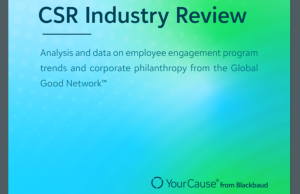The way nonprofits conduct business changed dramatically in 2020, on a number of levels, not only because of the coronavirus (COVID-19) but also boosted efforts around diversity, equity and inclusion (DEI) in response to increased attention to social justice.
Almost three out of five nonprofits cut costs last year and more than half expect to continue cutting costs in 2021, according to a recent survey of their employees. The 2020 Eagle Hill Consulting Nonprofit Survey, conducted by Ispos, included 505 respondents from a random sample of nonprofit employees across the United States.
A majority of employees, some 54 percent, say that leaders have implemented significant changes to their organizations’ goals and activities. More than four out of five indicated that their organizations changed how they serve constituents, in response to the coronavirus (COVID-19).
In recent months, nonprofits have implemented:
- Program reductions, 30%
- Hiring freezes, 30%
- Furloughs, 25%
- Salary reductions, 24%
- Layoffs, 20%
Employees predict that many of the same moves will continue into 2021 to varying degrees:
- Program reductions, 32%
- Hiring freezes, 32%
- Salary reductions, 23%
- Layoffs, 20%
- Furloughs, 17%
Employees said that more than half of organizations have made changes to raise money to support causes related to COVID-19, and almost one in five said they made changes to raise money related to social justice.
Some 58 percent reported that nonprofits have increased the focus on diversity, equity and inclusion (DEI) in the workplace. The most common actions taken by employers was more training (44 percent) and facilitating staff conversations (33 percent), followed by:
- Establishing governance structures, 18%
- Establishing affinity groups, 17%
- Reforming recruiting, 14%
- Changing human resources policies, 12%
Melissa Jezior is president and CEO of Eagle Hill Consulting, which has offices in Seattle, Boston and Arlington, Va. “The good news is that most nonprofit leaders are not hesitating to make changes in response to a multitude of unprecedented challenges,” Jezior said via a statement. “Change is never easy for employees and it’s even more complicated when employees are operating with fewer resources, higher demands and they’re fearful about their job security,” she said.
“For nonprofits to continue to deliver on their mission during these uncertain times, it will be critical for leaders to make employee engagement a top priority. Employees are the driving force behind the resilience and innovation that is required for nonprofits to not only survive this turmoil but emerge stronger once we’re through these rough waters,” Jezior said.








